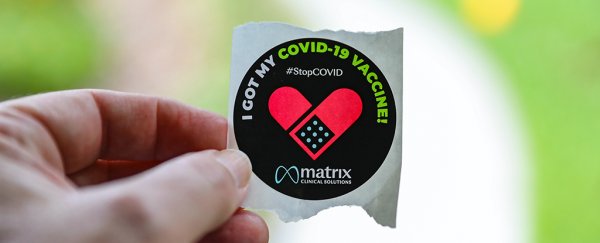Being fully vaccinated halves the risk of developing long-lasting symptoms from a COVID-19 infection, also known as 'long COVID', according to a large UK study.
The study, published in the peer-reviewed journal The Lancet Infectious Diseases on Wednesday, used data from the ZOE COVID study, which uses an app to track self-reported COVID-19 symptoms from more than 4 million people in the UK.
The study found that those who did get infected after two doses of vaccine were 47 percent less likely to have COVID-19 symptoms lasting longer than 28 days.
Fever, persistent cough, loss of smell, and fatigue were the long-lasting symptoms most commonly reported by the study participants, the study said.
Of the approximately 1 million fully vaccinated people tracked in the study, only 0.2 percent developed a COVID-19 infection, and they were about twice as likely to be asymptomatic as those who weren't vaccinated, the study said.
However, being partially vaccinated – meaning having one dose out of a two-dose vaccine – did little to reduce the risk of developing long COVID, the study found.
The study included data from December 2020 to early July 2021, a time frame in which the Alpha variant was dominant in the UK and the beginning of the Delta variant wave in the country. The study did not break down the data about the infections by variant.
Vaccines have already been proven to help protect against COVID-19 infection, and reduce the risk of developing a severe disease. While breakthrough infections can happen, they tend to be milder in people who are fully vaccinated.
"Vaccinations are massively reducing the chances of people getting long COVID in two ways," said Professor Tim Spector of King's College London, one of the study's authors, per Sky News.
"Firstly, by reducing the risk of any symptoms by eight-to-10-fold, and then by halving the chances of any infection turning into long COVID, if it does happen."
This article was originally published by Business Insider.
More from Business Insider:
